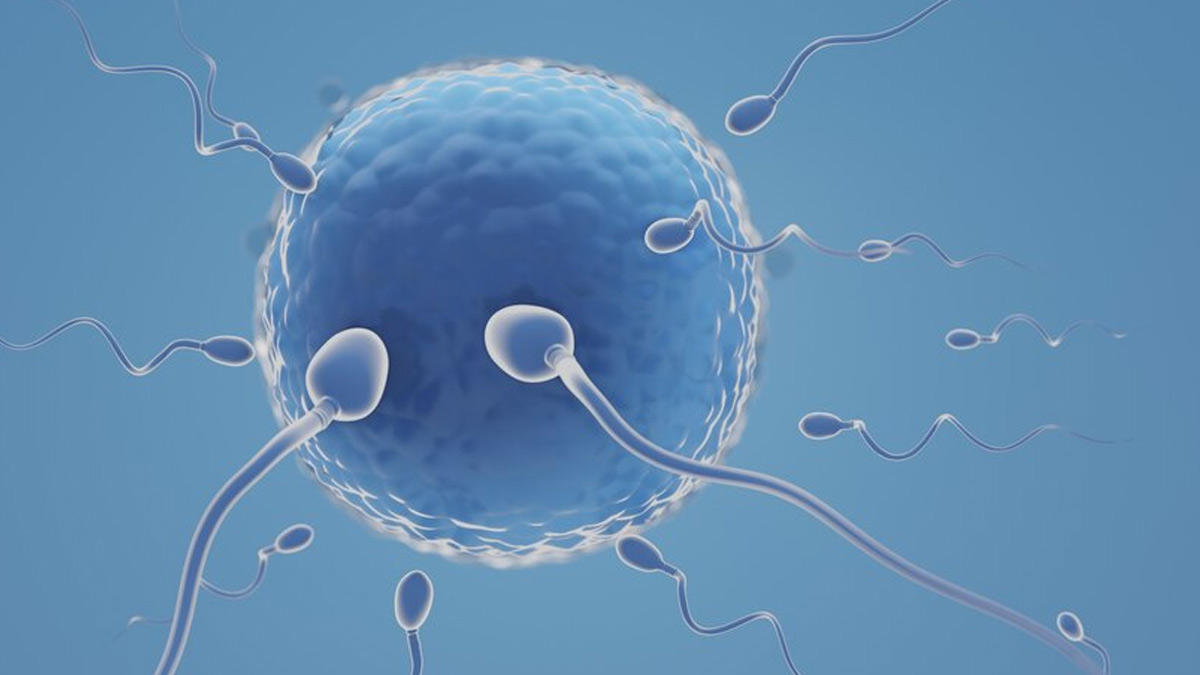
For most women, the path to motherhood is an intimate and, in many cases, eagerly welcomed one. While some factors beyond our control influence fertility, a considerable majority of factors can be encouraged through lifestyle. Being proactive in maximising your health pre-conception can greatly enhance your likelihood of conceiving and having a healthy pregnancy.
Table of Content:-
What Should Women Do To Boost Fertility
In an exclusive interaction with the editorial team of Onlymyhealth, Dr Vikas Yadav, Senior Consultant, Department of Obstetrics, Gynaecology & IVF Specialist, ShardaCare-Healthcity - Noida, shared a detailed guide on what women can do to improve their fertility. Here is what he shared with us:
1. The Fertility Diet
What you eat has a major impact on hormonal harmony and overall reproductive well-being. Concentrate on an even, nutrient-dense diet that nourishes your body's complex systems.
- Adopt Antioxidants: These potent molecules defend your cells, including your egg cells, against free radical damage. Fill up on rainbow-colored fruits, vegetables, nuts, and whole grains, which are packed with vitamins C and E, folate, beta-carotene, and lutein.
- Choose Complex Carbohydrates: In contrast to refined carbs (white pasta, bread, sweetened beverages), complex carbohydrates such as whole grains, sweet potatoes, and oats are digested slowly, which keeps insulin and blood sugar levels stable. Healthy hormone production and ovulation depend on stable insulin levels.
- Prioritise Plant-Based Protein: Studies have shown that women who derive more protein from plant-based sources (beans, lentils, nuts, seeds) might have a lower risk of ovulatory infertility than women who eat high amounts of animal protein.
- Select Healthy Fats: Add unsaturated fats from avocados, olive oil, nuts, and seeds. Omega-3 fatty acids in oily fish like sardines and salmon are especially useful in enhancing egg quality and overall reproductive health. Avoid trans fats present in fried and processed food, as they hinder insulin sensitivity.
- Don't Avoid Full-Fat Dairy (in moderation): Certain research associates full-fat dairy foods with reduced ovulatory infertility risk. They are rich in vitamins A, E, and D.
- Boost Fibre Intake: Fibre can regulate blood sugar and foster healthy digestion. Whole grains, fruits, vegetables, and legumes are excellent sources.
Also Read: Is Drinking Water While Standing Bad for Your Kidneys? What Science and Expert Say

2. Exercise Your Body, Mindfully
Regular exercise is good for overall health as well as reproductive health. It aids weight control, hormonal balance, blood flow, and stress relief.
- Opt for Moderate Exercise: Exercise such as brisk walking, swimming, cycling, or yoga improves insulin sensitivity, lessens stress, and normalises menstrual cycles.
- Steer Clear of Too Much High-Intensity Exercise: Exercise is good, but too much hard exercise, particularly for women who are a healthy weight, can disrupt ovulation and decrease levels of progesterone, a hormone that is very important in pregnancy. Stick to under five hours of hard exercise per week and under 60 minutes per day if you are trying to conceive.
- Have a Healthy Weight: Overweight as well as underweight can interfere with ovulation and menstrual cycles. Aim for a healthy BMI (18.5-24.9 kg/m2). Even modest weight loss of 5-10% can make a significant difference in ovulation rates in women who are overweight.
3. Stress Management
The conception process can be stressful, and stress over the long term can interfere with hormonal balance and reproductive function.
- Practice Relaxation Skills: Add to your routine practices such as meditation, breathing exercises, and yoga. It takes only a few minutes a day.
- Get Support: Talk openly with your partner, seek support groups, or seek professional therapy to deal with the emotional impact of trying to conceive.
- Do Something You Enjoy: Spend time doing things you love to give you a much-needed distraction and minimise tension.
- Prioritise Sleep: Get seven to eight hours of good quality sleep nightly to balance stress hormones.

4. Supplementation
While diet is the foundation, some supplements can fill the gaps.
- Folic Acid: This is important! Begin taking 400 micrograms of folic acid per day at least one month before conception and continue during the first 12 weeks of pregnancy. It greatly lowers the risk of neural tube defects in the baby. A higher dose (5mg) might be prescribed by your doctor if you have specific medical conditions or a family history of neural tube defects.
- Vitamin D: Most women are low in Vitamin D. Sufficient levels correlate with increased pregnancy rates.
- Omega-3s: If your nutritional intake of oily fish is poor, take an omega-3 supplement that includes DHA.
- Iron: Sufficient stores of iron are necessary to get your body pregnancy-ready and are correlated with conception health.
- Zinc: Critical for healthy egg development and reproductive well-being.
- Prenatal Multivitamin: A prenatal multivitamin that is comprehensive for women who are attempting to conceive will ideally contain a combination of these key nutrients.
Important Note: Always ask your health practitioner to recommend new supplements before commencing them.
5. Lifestyle Changes: What Not to Do or Limit
Some habits can impede fertility and need to be limited or eliminated.
- Stop Smoking: Smoking significantly lowers a woman's probability of conception and ages the ovaries too early. Get help to quit smoking.
- Limit Alcohol: It's ideal to completely abstain from alcohol while attempting to conceive, as it can prolong the time it takes to conceive and poses risks in pregnancy.
- Moderate Caffeine Consumption: There is no strong association between moderate caffeine consumption and infertility, but it's always best to restrict intake to less than 200mg daily (the equivalent of one or two cups of coffee).
- Avoid Harmful Chemicals: Take care to avoid exposure to toxic chemicals, pesticides, and environmental toxins at home and the workplace.
- Prevent STIs: Avoid untreated STIs such as chlamydia and gonorrhea, leading causes of infertility. Have safe sex and screen yourself regularly.
When to Seek Professional Help
If you've been attempting to get pregnant for a year (or six months if you're over the age of 35) without luck, or if you have underlying medical problems that could influence fertility (e.g., PCOS, endometriosis, irregular periods), it's a good idea to see a fertility specialist or obstetrician. They can do a full evaluation and suggest individualised strategies or treatments.
Bottomline
Through making deliberate and persistent lifestyle decisions, women can empower themselves throughout the fertility journey, maximising their opportunities for a healthy conception and a joyful pregnancy. Keep in mind, it's a whole-body process, and tending to your overall well-being is essential.
Also watch this video
How we keep this article up to date:
We work with experts and keep a close eye on the latest in health and wellness. Whenever there is a new research or helpful information, we update our articles with accurate and useful advice.
Current Version